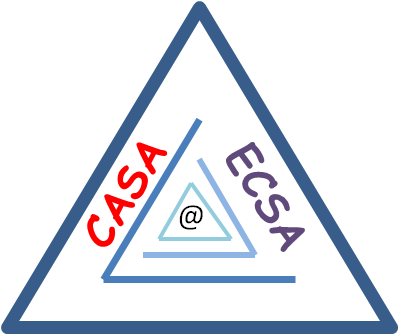Home
Software is becoming more and more aware of its current execution context. Decisions traditionally made at design time are moved at run-time to enhance the services offered by the software to its users. Furthermore, software reasons about the execution environments and its internal status to enhance the functionality provided by its users. Some of the keywords that characterize the software today are: context-aware, dynamic, autonomous, smart, adaptive, self-managed.In this context, the Context-aware, Autonomous, and Smart Architectures (CASA) workshop aims to address the issues and challenges raised by the design, implementation, and evaluation of software systems characterized by the above-mentioned keywords. Novel design and development approaches are needed to face the new issues raised by such systems. New solutions are expected to address properly the trade-offs among the various quality attributes characterizing these systems. Or, existing architectural solutions should be adapted and improved to meet the evolving and dynamic requirements of context-aware, autonomous, and smart systems.
The workshop aims to bring together software engineers and computer scientists, researchers, practitioners and educators to discuss and exchanges results, case studies, experiences, novel approaches and visionary ideas concerning software architectures for context-aware, autonomous, and smart solutions.
The Special Issue on Software Architectures for Context-Aware Smart Systems related to the first two editions CASA2017 and CASA 2018 of the workshop is available online.There is an open call for a Special Issue on Software Architectures for Smart and Adaptive Systems (SASAS) in the Information and Software Technology Journal related to the third edition of the workshop CASA 2020. For more information follow this link.
